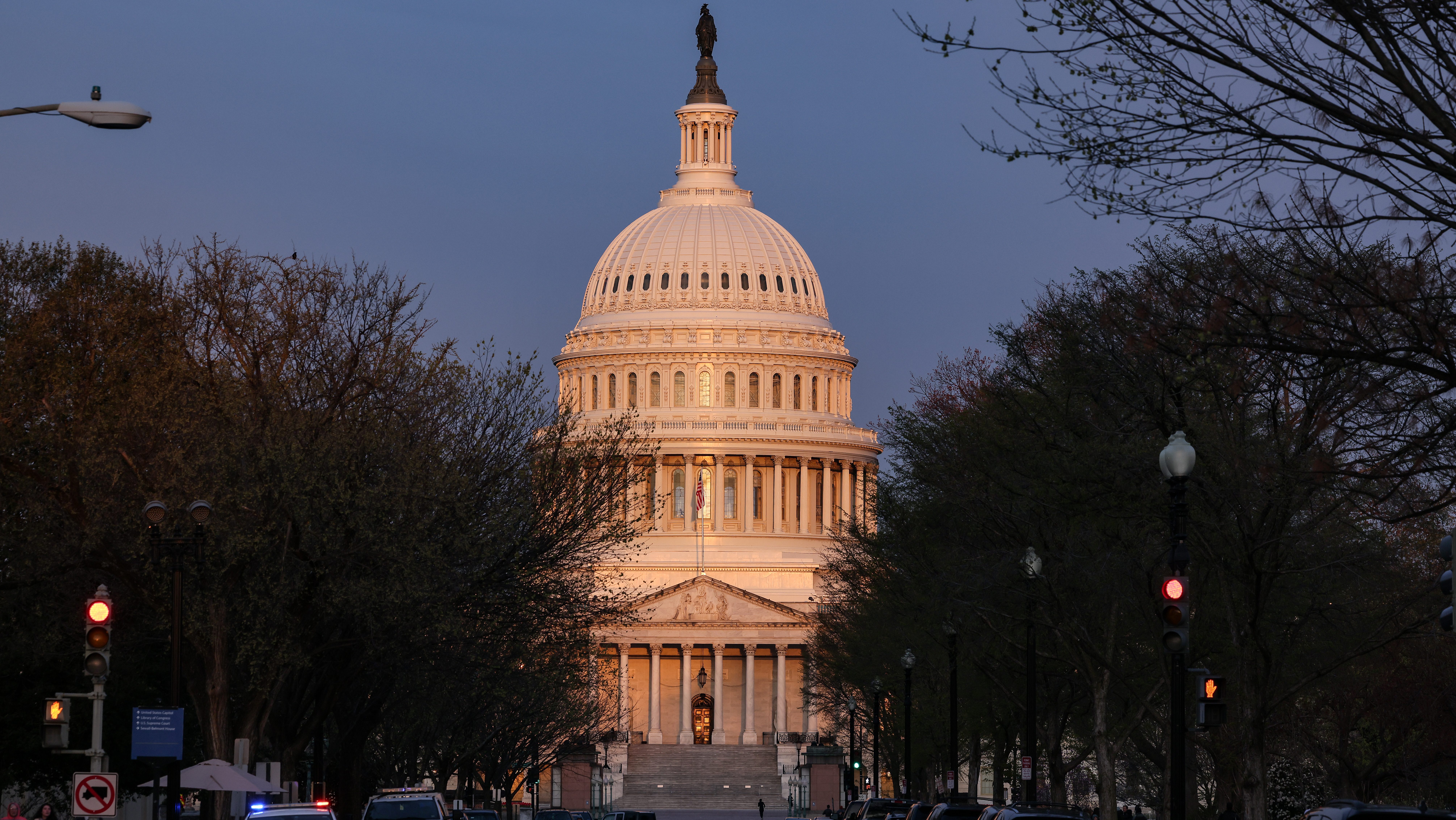The AIPAC Policy Conference, the largest gathering of the nation's pro-Israel movement, hosted four of the five U.S. presidential candidates Monday.
Hillary Clinton, John Kasich, Donald Trump and Ted Cruz all explained how their administrations would treat Israel if they are elected president in November.
The annual policy conference of the American Israel Public Affairs Committee draws top Jewish leaders from across the world. The event is a traditional stop for U.S. politicians eager to demonstrate their foreign policy credentials by wading into Middle East conflicts.
It also drew several dozen protesters alternating between anti-Trump and anti-Israel chants to Washington, D.C.'s Verizon Center.
AIPAC bills itself as nonpartisan and has never endorsed a candidate. But the organization has played a big role in partisan political debates over issues of interest to Israel. Most recently, it worked hard to try and scuttle the Iran nuclear agreement, putting the group at odds with ardent deal supporters Clinton and Democrat Bernie Sanders, and to a certain degree, with Kasich, the lone Republican who had not said he would automatically rescind the pact.
Sanders — who is trying to become the first Jewish candidate to win a major party's presidential nomination — skipped the AIPAC meeting to campaign ahead of primaries in Utah and Arizona on Tuesday. He planned to lay out his own foreign policy vision with a speech in Salt Lake City later Monday.
Clinton spoke first, previewing an early line of Democratic attack against Donald Trump. She cast the GOP front-runner as unqualified to handle heated international conflicts as commander in chief in a speech before the prominent pro-Israel advocacy organization.
U.S. & World
The former secretary of state used her address not only to highlight her decades of work in the region but also to raise questions about Trump's credentials and trustworthiness.
"We need steady hands," she told thousands of activists gathered in Washington on Monday. "Not a president who says he's neutral on Monday, pro-Israel on Tuesday and who-knows-what on Wednesday because everything's negotiable."
Israel's security, she proclaimed to loud applause, "is non-negotiable."
The comments were aimed at Trump, who sparked criticism from Republican allies of the Jewish state when he vowed to be a "sort of a neutral guy" on Israel in February. While the U.S. is officially neutral in the Middle East conflict, his statement sparked a marked rhetorical departure for typically strongly pro-Israel U.S. presidential candidates.
Trump focused on Iran in his speech, telling the gathering that "Iran is the biggest sponsor of terrorism around the world" and bashing Clinton, speaking with the aid of a teleprompter – a rarity for the businessman who usually speaks off-the-cuff using hand-scrawled, point-form notes.
Trump also slammed the United Nations as a group that is "not a friend" of democracy, freedom, the United States or Israel. He said that that "each side" in the Israeli-Palestinian conflict "must give up something" for a peace deal to work.
Cruz, speaking after Trump, criticized the Republican front-runner for referring to "Palestine" in his speech.
"Palestine has not existed since 1948," Cruz began in his speech Monday to applause from the crowd in Washington.
The Texas senator seized on Trump's past statement promising to be "neutral" in brokering a peace deal between Israel and Palestinians.
"As president, I will not be neutral," Cruz said. "America will stand unapologetically with the nation of Israel."
Trump, himself, did not address his past reference to neutrality.
Kasich took Trump on as well, taking subtle shots at his rival by saying he already knows about the dangers facing the U.S. and its allies: "I don't need on the job training." He also said he would stamp out intolerance, racism and anti-semitism.
In a change from months of pledging that he would not "rip up" the multinational Iran nuclear deal, Kasich told the arena he is now calling for a suspension in the U.S. involvement in it after Iran's recent ballistic missile tests, which he said are a violation.



